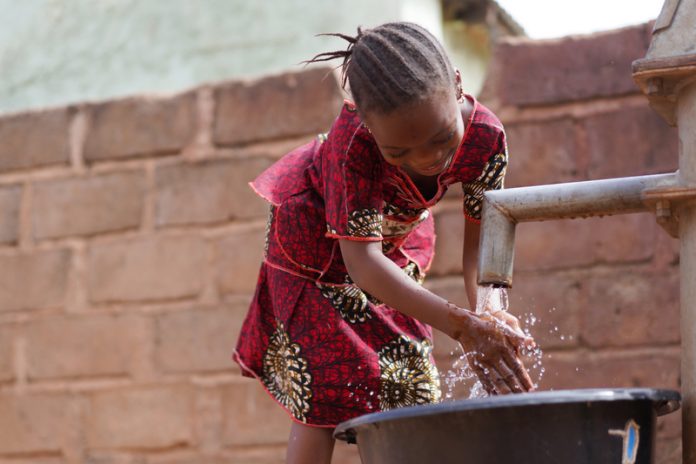Fatima Katergi, Senior Programmes Officer and Abid Shah UK Programmes Manager at Human Appeal, describes the role of the humanitarian sector concerning emergency relief in a pandemic which is more difficult, but certainly more necessary
While most of the world has been stopped in its tracks over the past year as the COVID-19 pandemic has taken hold, the work of the humanitarian sector has never been more important, especially the emergency interventions we carry out regularly.
Emergency interventions are usually delivered via the provision of food aid, shelter, WASH (water, sanitation and hygiene) and NFIs (non-food items). The onset of the pandemic immediately made this both more necessary and difficult at the same time.
Global response leaves gaps
Working on Human Appeal’s emergency interventions in the UK and around the world during these testing times, we have seen the need for emergency assistance increase, as vulnerable communities are left exposed to the harsh realities of the pandemic’s impact on the poorest parts of the globe.
As developed economies shrink due to the impact of the pandemic, funding for emergency assistance from individual governments and international bodies has become more difficult to access for millions in need, just as they need it most. The UNCHR requested $745 million for its global COVID-19 emergency response until the end of 2020, however, it fell $268 million short if its target. (1) It’s organisations like ours that are plugging the gap.
WASH is vital to protecting people
One of the most dangerous places for a vulnerable person to be during this pandemic is a refugee camp. Crowded and unsanitary conditions create the perfect environment for the virus to spread, and the lack of testing means the risk to aid workers entering camps has increased. In addition to food parcels, the other main kind of emergency relief being provided to people in refugee camps is WASH assistance, in the form of COVID-19 hygiene kits, with various charities launching emergency appeals to fund these.
Other forms of WASH assistance being provided by charities during the pandemic include the disinfecting of water wells and sources in vulnerable communities and the mass provision of hand sanitiser. Last year 40,000 litres of hand sanitiser was donated by just one company to the UNHCR, to help combat COVID-19 in refugee camps. (2)
In addition to this, one of the main ways in which emergency relief has changed is the mass provision of PPE, especially for healthcare professionals working in crumbling healthcare systems that are struggling to cope with the influx of COVID-19 patients. PPE is also being manufactured directly in these areas, to aid quicker distribution to people in refugee camps and hospitals. (3)
Shelter & NFIs just as important
When winter comes around, a lot of the focus on emergency assistance turns to shelter and NFIs like clothes, blankets, bedding and fuel, which far too often are the difference between life and death for millions of people.
Fighting illness is so much more difficult in cold winter months, especially for people with no access to nutritious food or any way to stay warm. With COVID-19 spreading unchecked among people with no adequate shelter or protection from the worst of winter, charities boosted efforts over winter to provide emergency relief that kept people off the streets, wrapped up and fed.
Not just the developing world
As the pandemic has shone a light on the gaps that exist in richer societies, we know from our experience in the UK that charities have been finding and providing assistance to people who would otherwise not have known who or where to reach out to. This has mainly been in the form of food assistance, however, there has also been an increase in people needing help fleeing domestic abuse, with organisations reporting huge increases in web traffic and calls. (4)
With potentially 2 million more families being pushed into poverty by the pandemic (5), there is no guarantee that the need for emergency assistance in the UK will reduce.
Long-term implications
As nations like the UK are well underway with their vaccination programmes and leaders discuss potential road maps out of the pandemic, it’s a different story in the poorest parts of the world. Millions of people in low-income countries will be waiting until 2022 for a vaccine (6), and in that time more people will inevitably die. As a result, the emergency interventions that charities like ours have carried out during the pandemic are likely to carry on well beyond the return to ‘normal’ in the UK and the rest of the developed world.
The overall impact of the pandemic on emergency relief is that it’s highlighted more of the people who need our help while at the same time, making it more difficult to deliver it. Despite this, charities have battled to help people on a massive scale and will continue to do so as developed countries begin to look to their own post-COVID recoveries.
References
(1) https://reliefweb.int/report/world/unhcr-global-covid-19-emergency-response-22-december-2020
(4) https://publications.parliament.uk/pa/cm5801/cmselect/cmhaff/321/32105.htm#_idTextAnchor001











